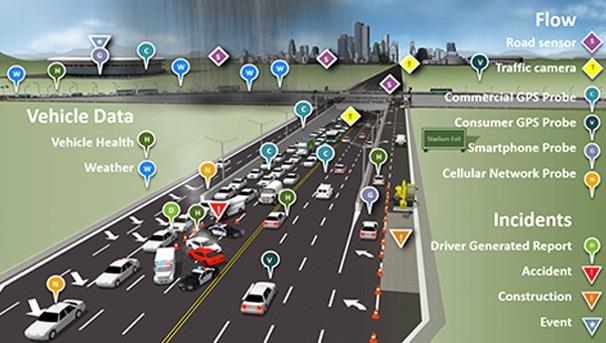Presented by Dr. Samer Hamdar, Transportation Program Director, GWU

Traffic flow capacity drops significantly on roadway segments when bottlenecks are created by high traffic volumes, accidents, and weather conditions. Does traffic flow performance improve with the introduction of connected and automated vehicles on our highways? The George Washington University (GW) Transportation Research Group has been conducting research to answer that question. To this end, it relies on:
- Continuous Count Station (CCS) data administrated by Virginia Department of Transportation (VDOT) in Northern Virginia
- Collision data administered by National Highway Traffic Safety Administration (NHTSA)
- Weather data published by the Weather Channel
An analysis of this data leads to the identification of different regimes or conditions, namely, normal commute condition, incident condition, and inclement weather condition. The Intelligent Driver Model (IDM) is then used to compute behavioral parameters that result in the identified regimes. These parameters are then modified to account for the connectivity and automation in driverless vehicles and thus to evaluate the impact of such technology (i.e. connected and automated vehicle technologies) on traffic performance. Finally, the research team conducts a validation effort through vehicle instrumentation at the Vehicle Instrumentation Garage (VIG) located at the GW Virginia Science and Technology Campus (VSTC).
The event was hosted by ASCE-NCS Transportation Committee (Stuart Crooks, HNTB: Chair; Robert Kalbach, WSP: Vice Chair; Alvaro Oviedo, RAM: Secretary; Ranjit Sahai, RAM: Committee Director). This lecture kicked off the Transportation Committee's for ASCE-NCS’ 2017-18 fiscal year.
